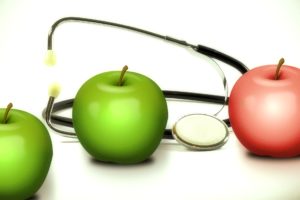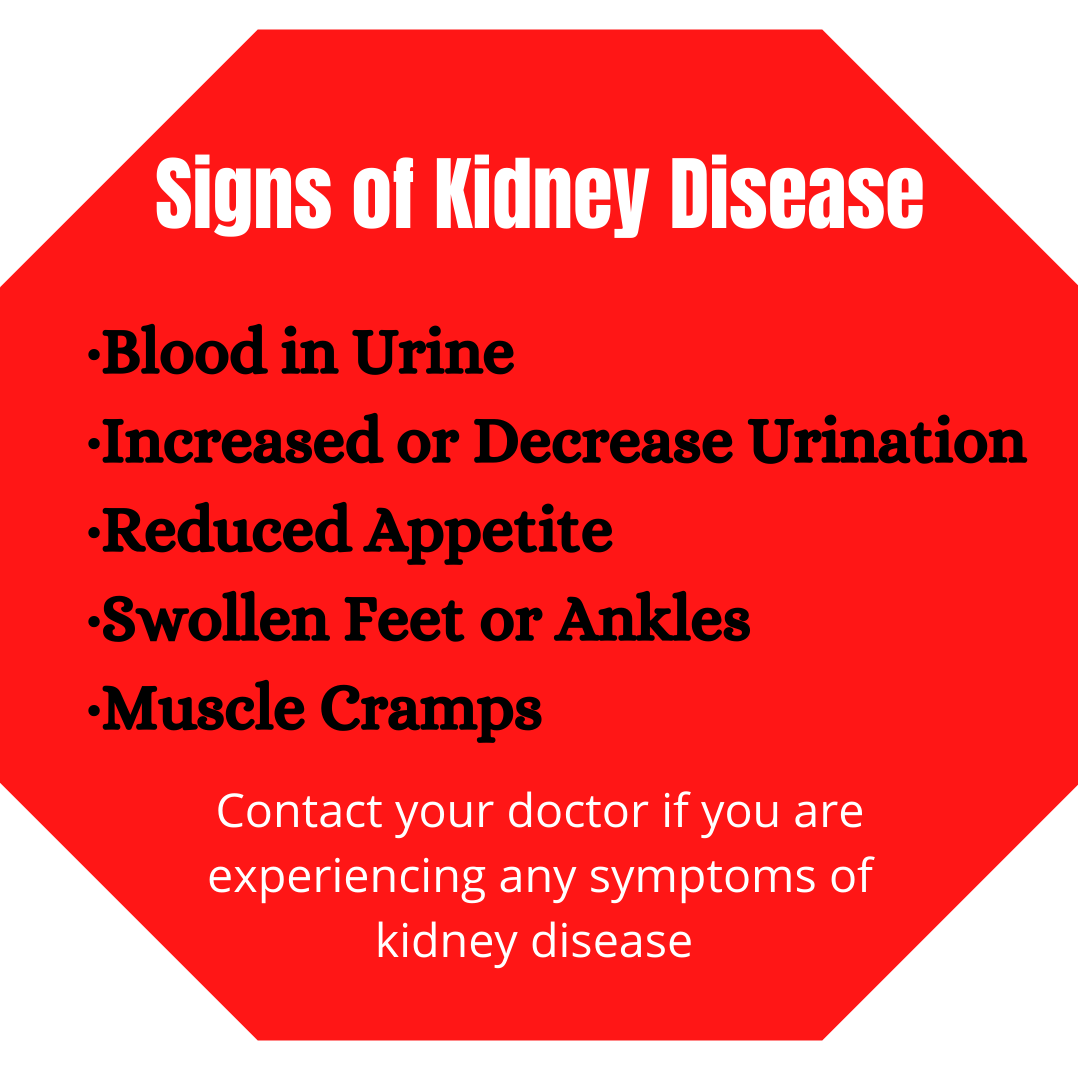Celebrated each March, National Kidney Month is a time to spread awareness about kidney health, chronic kidney disease, and the importance of getting tested. Chronic Kidney Disease (CKD) is a serious condition in which the kidneys are damaged or can’t filter blood as well as healthy kidneys. Because of this, excess fluid and waste products in the blood remain in the body and can cause other health issues.
According to the National Institutes of Health (NIH), chronic kidney disease affects millions of Americans and is often overlooked until symptoms appear. Kidney disease left unchecked is progressive and can put you at risk for serious health complications including kidney failure.
What are the Chances? Risk factors of Kidney Disease.
- Risk factors for developing chronic kidney disease include:
- High Blood pressure (hypertension)
- Diabetes
- Heart Disease
- Obesity
- Family history of kidney disease
Though currently there is no cure for chronic kidney disease, it can be treated, and many cases of chronic kidney disease are preventable. Hypertension (high blood pressure) and diabetes cause the vast majority of all cases of kidney failure. Managing those conditions and keeping them under control can help prevent kidney disease. A doctor can screen for kidney disease with simple blood and urine tests.
How do I know? Signs of Kidney Disease.
- Some common symptoms associated with various kidney conditions and diseases include:
- Blood in Urine
- Increased or Decrease Urination
- Reduced Appetite
- Swollen Feet or Ankles
- Muscle Cramps
If you’re concerned or experiencing any symptoms of kidney disease and want to learn more about your risk of a kidney condition, schedule an appointment with your primary care doctor for more kidney health information and routine testing.
What to Do? Taking Care of your Kidneys.
Embracing a healthy lifestyle can help you to manage and slow the progression of chronic kidney disease and its complications. To help reduce your risk and protect your kidneys from kidney disease:
- Meet with your health care team – Regular appointments with your family doctor for check-ups and routine screening can help you maintain kidney health.
- Don’t smoke – If you smoke, quit now. Cigarette smoking contributes to high blood pressure and compromises blood flow to the kidneys which can worsen kidney damage.
- Healthy nutrition / Healthy weight – Try to eat a healthy diet low in salt, fat, and alcohol. Being overweight makes your kidneys work harder and cause damage.
- Exercise & Reduce stress – Consider implementing at least 30 minutes of healthy stress-reducing physical activity every day.
- Monitor your Blood Sugar and manage your Blood Pressure – Develop a plan with your family physician to check your blood glucose level regularly if you have diabetes and to monitor and meet your blood pressure goals.

Some lifestyle changes may seem hard, but don’t give up, even small changes can go a long way to keeping your kidneys healthier longer. Don’t be afraid to ask your doctor or medical team for help. If your family practice health care team includes a nutritionist, consider making an appointment with them for help with a healthy diet plan. If you’re a smoker, ask your physician for help with quitting smoking.
If you have been diagnosed with chronic kidney disease or you suspect you may have it, please contact our family practice for help. At River Bend Medical Associates we are dedicated to educating our patients not only about chronic kidney disease treatments, but also about how to lower your risk for the disease, and how to manage it.
Looking for help with controlling your diabetes, want to return to your previous weight, need accountability, or are simply interested in your health and nutrition? Contact our Wellness & Nutrition Program team for help.
As part of your medical team, we are here to provide you with the best care in all aspects of your health care needs including kidney health. For more information on our medical practice, or to make an appointment contact River Bend Medical Associates, or call 916-392-4000.


